Suzanne Collins’ novel The Ballad of Songbirds and Snakes, adapted for the silver screen by trusted Hunger Games filmmaker Francis Lawrence, is wonderfully referential, and not just within the context of its series, but outside of it as well.
One of my personal favorite citations is the poem that inspired Lucy Gray Baird’s name. The songstress, played by Rachel Zegler in the film, is named after a William Wordsworth poem that all but informs the character’s destiny. Although we hear the Covey sing this ballad while walking towards the lake, and Coriolanus later asks Lucy Gray what the fate of the text’s subject was, the movie never delves deep enough into its meaning. “It’s a mystery, sweetheart. Just like me,” she tells the man who would later complete the prophecy and turn the poem into Lucy Gray’s actual fate.
William Wordsworth’s Lucy Gray ballad
With some slight alterations for clarity and language, William Wordsworth’s 1799 poem titled “Lucy Gray,” from the book Lyrical Ballads, is featured integrally both in Collins’ book and the official soundtrack album for the film, even if not in the film itself, as it’s six minutes long.
Wordsworth wrote the poem based on a legend of a young child who disappeared in a snowstorm in Yorkshire, England. In real life, her body was found in the canal, but in the English poet’s creation, she vanished, never to be seen again. Her parents traced her footsteps in the snow all the way to the middle of a wooden bridge when they stopped suddenly. If you’ve seen the Hunger Games prequel, the parallelism is probably jumping out at you already.
The haunting references to “snow” in Woodsworth’s poem
Collins’ choices in The Ballad of Songbirds and Snakes are all incredibly intentional. From her characters’ names, hobbies, and relationships, to the inclusion of references to the original trilogy like “The Hanging Tree” and the swamp potato they call katniss. However, I’d argue there is none as layered as the choice to name her leading lady, and the romantic interest of a young President Snow, after a character who gets lost in a blizzard, and then proceed to write her story as perfectly mirroring this poem.
In Wordsworth’s poem, after Lucy Gray’s father asks her to go to the town so she can guide her mother back home safely before the storm breaks, the little girl happily obliges, and the author describes the start of her journey through the snow as joyful and “carefree.” He writes, “A fresh, new path she broke / Her feet dispersed the powdery snow, / That rose up just like smoke.” It’s hard not to associate the mentions of snow with the character of Coriolanus Snow. Much like the girl in the poem, Collins’ Lucy Gray also came into Snow’s life like a daring, joyful force that would disperse and threaten his stoic exterior by igniting feelings in him that were too passionate to be handled rationally, similar to the imagery of snow rising up like smoke. She turned his life inside out.
Through the book’s third-person limited point of view, we are privy to Coriolanus’ colorful commentary about the ballad as Lucy Gray’s friend Maude Ivory sings it. He’s not a fan of the cryptic poem and is unimpressed by its logic. “Lots of nonsense words, but she got lost in the snow. Well, no wonder, if they sent her out into a snowstorm. And then she probably froze to death,” the Peacekeeper thinks to himself. His very pragmatic take on the story is, essentially, “play with fire and you will get burnt.” And that’s exactly how he sees the world around him; actions must always have consequences, stupidity, and navivité will land you in trouble, and you’re to blame if you end up hurt.
Lucy Gray’s disappearance in the poem and the book/film
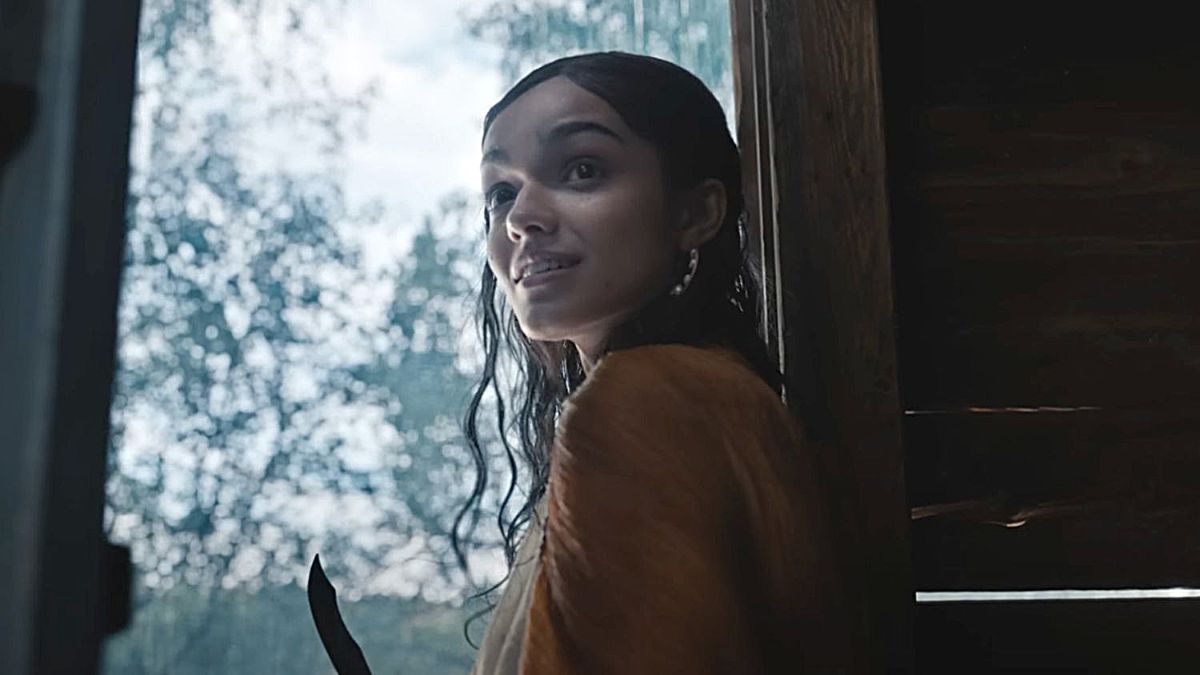
“It’s a mystery, sweetheart. Just like me.” Lucy Gray did not know how prophetic her words were. One of the most genius elements of Ballad is its ambiguous ending. In an outburst of rage, and after being bitten by a snake, Coriolanus shoots at the trees in the hopes of catching Lucy Gray. She falls, but by the time the man gets to her, she’s gone. He can trace her footprints on the mud but, like in Wordsworth’s poem, after a few steps, the marks vanish, and then we hear Lucy Gray sing “The Hanging Tree,” only for the mockingjays to repeat its melody in a maddening loop. We’re left wondering if snake venom had caused Coriolanus to partly hallucinate some of these events, but the fact of the matter is that Lucy Gray was never heard from again. The events in the book differ slightly — there are no footprints and we eventually find out the snake wasn’t venomous — but the movie chose to lean even deeper into the poem.
Some believed Lucy Gray had been killed by the District 12 Mayor, but her true fate was never known. Only, there’s a conversation between Coriolanus and Maude Ivory in the book that foreshadows the entire thing. Talking about Wordsworth’s piece, the young woman says she thinks the Lucy Gray of the poem “flies like a bird” and that’s why she doesn’t leave any footprints. Throughout the movie, Dr. Gaul, Grand Ma’am, and others repeatedly refer to Lucy Gray as “the songbird,” and after she disappears, we hear her voice echoing in the sky as the mockingjays repeat her melody — a song that would haunt Coriolanus Snow until the day he finally died. “The Hanging Tree,” a song written by Lucy Gray after the hanging of a District 12 rebel, became the anthem of the rebellion led by Katniss Everdeen, which finally brought Snow’s regime down 65 years later, and, in a way, avenged the elusive Victor of the 10th Hunger Games.
“Over rough and smooth she trips along, / And never looks behind; And sings a solitary song / That whistles in the wind.”

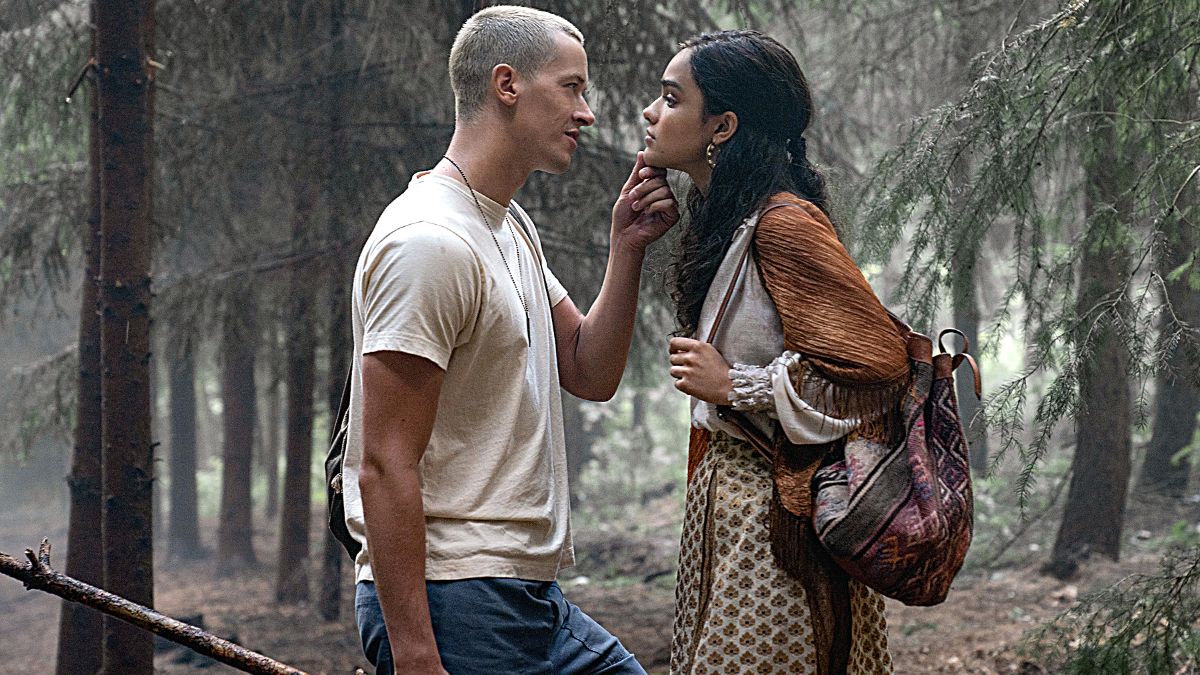


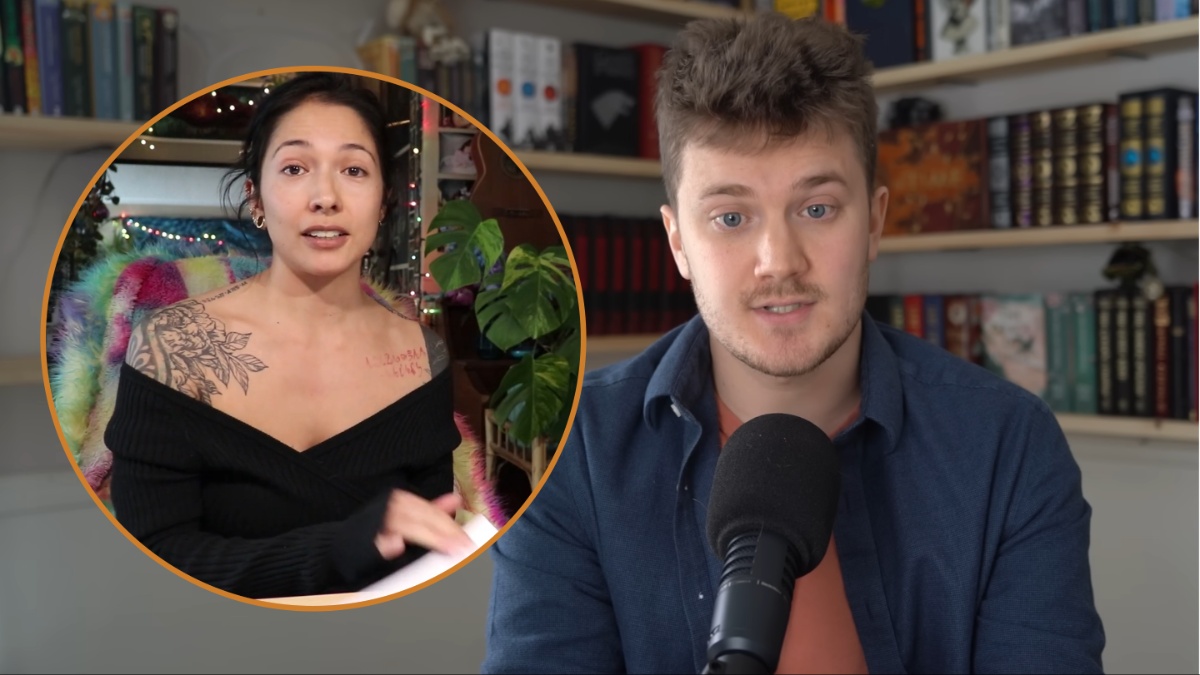
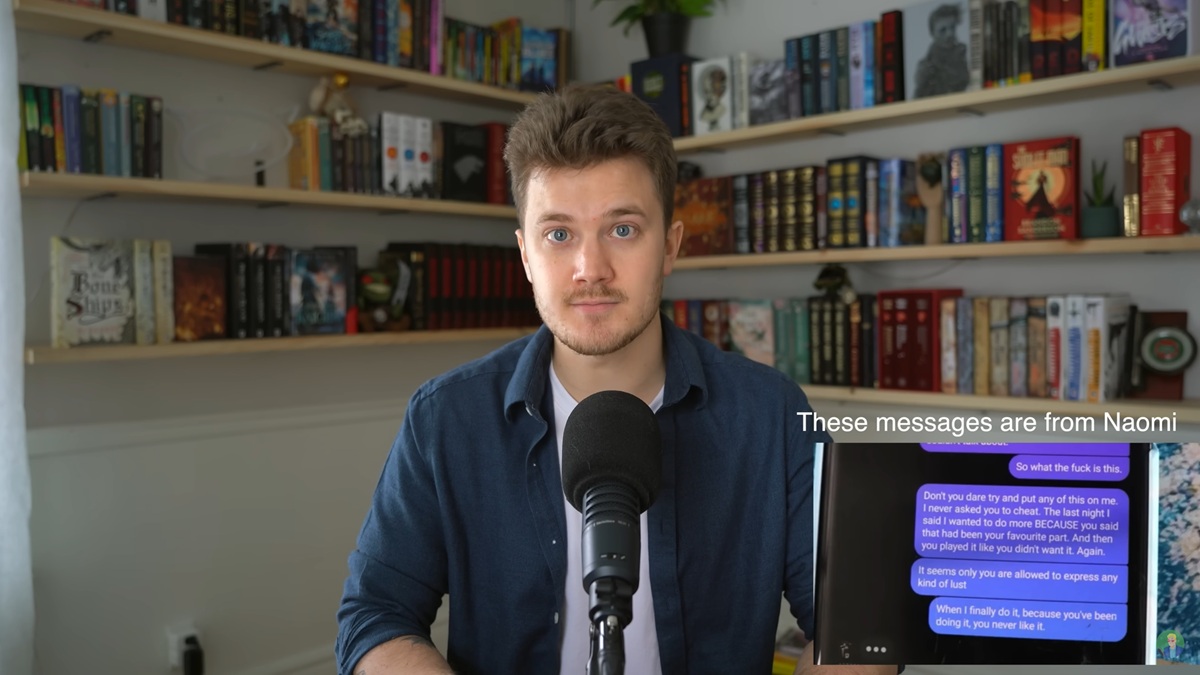
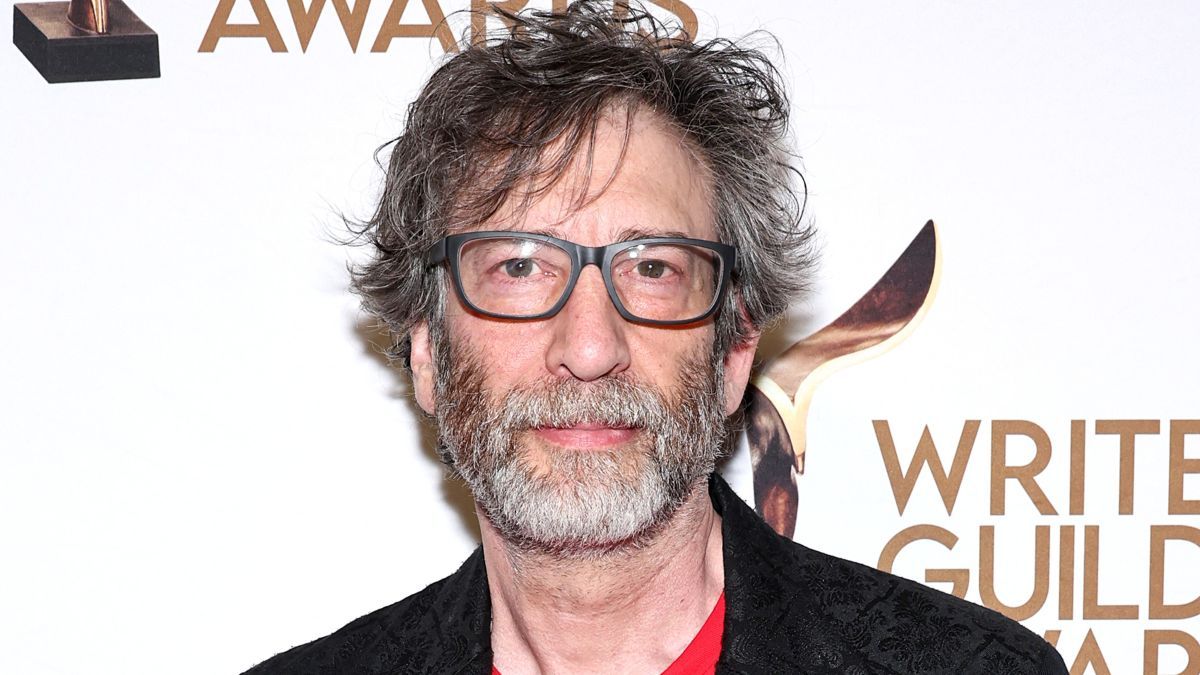


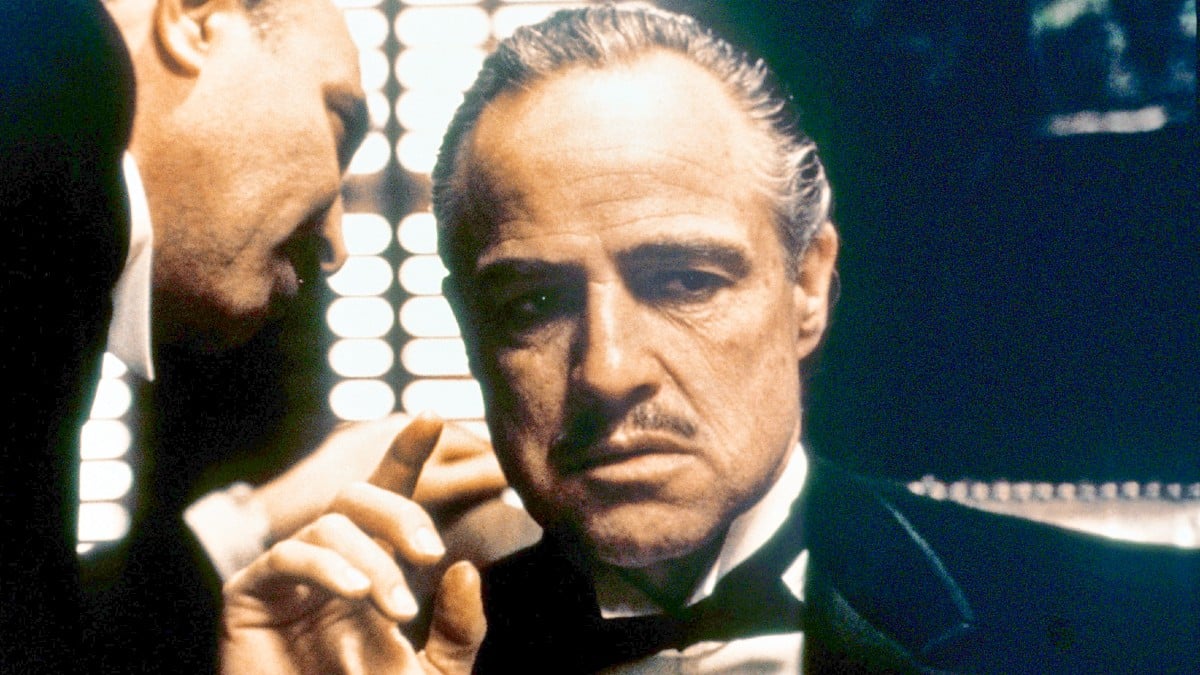

Published: Nov 20, 2023 12:32 pm